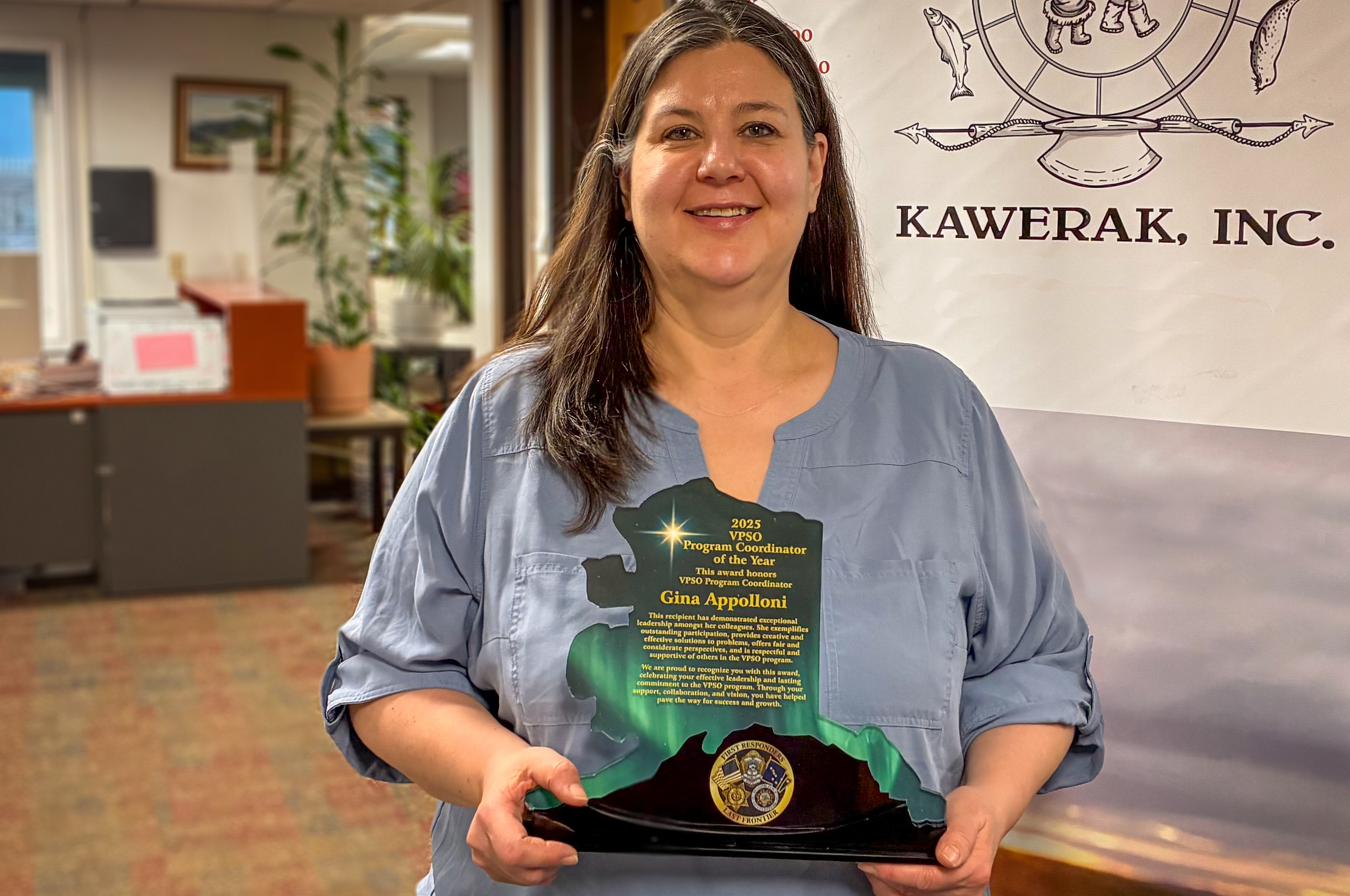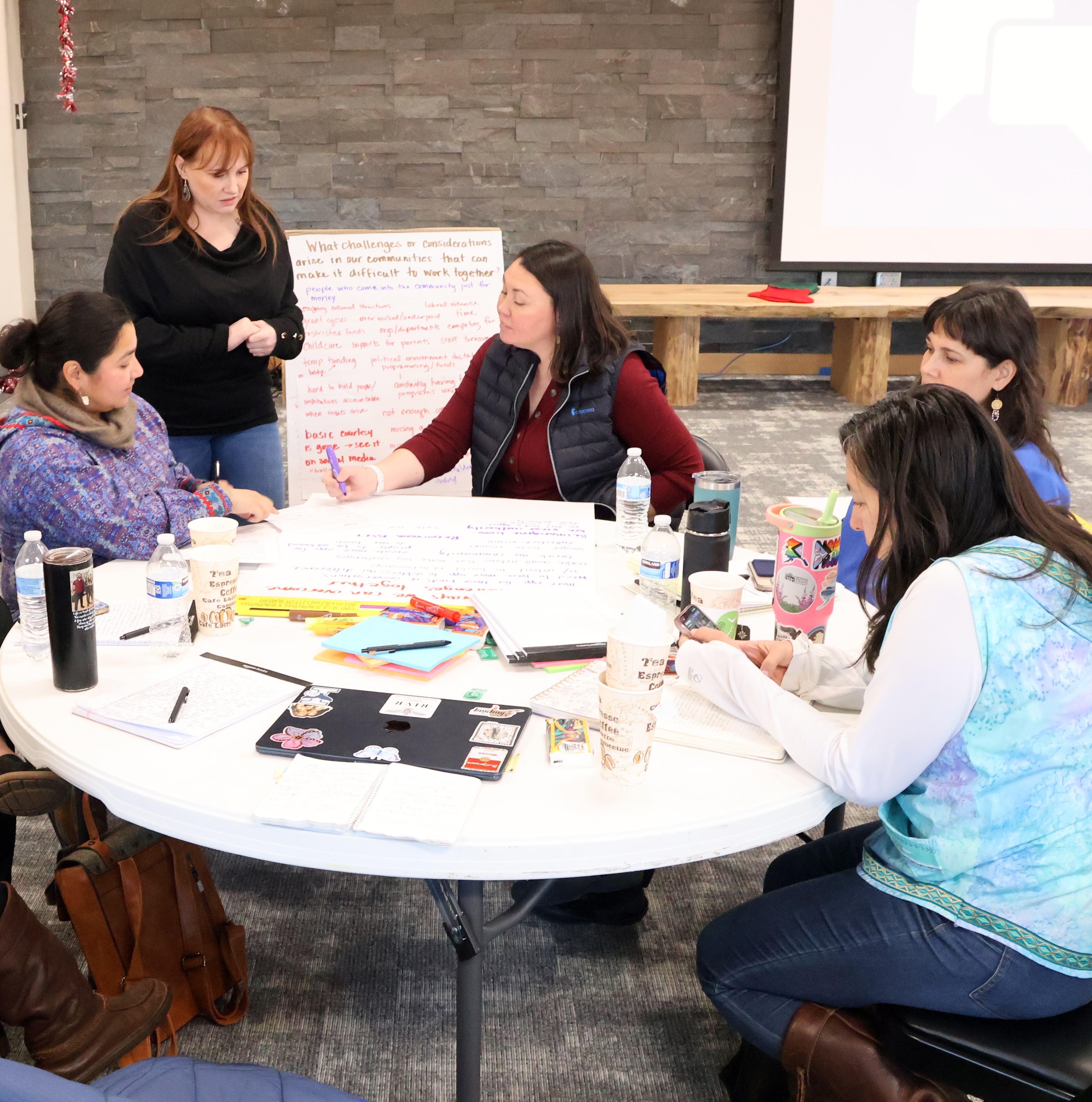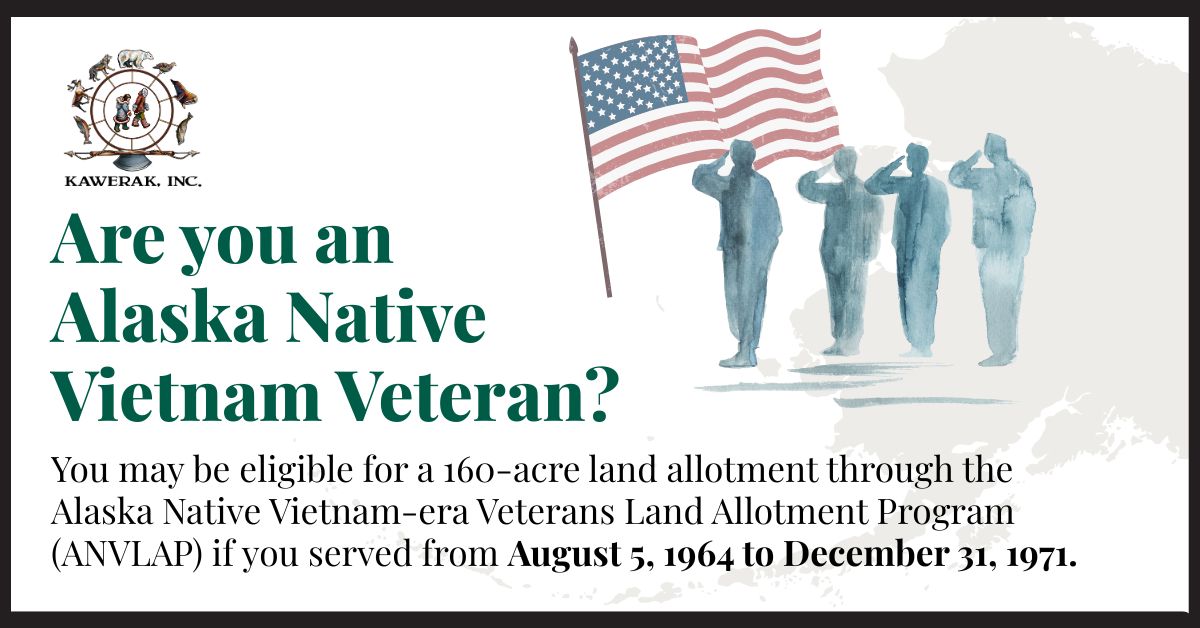The changing climate, vessel traffic, infrastructure needs, resource development and the shifting marine ecosystem are all contributing to the gravitational pull of scientists to the Arctic. Along with their research and related activities, greater attention is also being paid to increasing the participation of region communities and utilizing their knowledge in policy and science. This situation puts Tribes in a unique position to inform Western science with Indigenous and Traditional Knowledge as well as promote and utilize traditional management practices The terms of this exchange and of these relationships must, however, begin in a place of equity, respect, cooperation and acknowledgement from the scientific community regarding the value of Tribal knowledge, culture and customs.
RESEARCH PRACTICES HISTORICALLY IN THE BERING STRAIT REGION
In the recent past, the research landscape in the Bering Strait region, in tribal homelands (including the ocean), has been often been initiated, developed and carried out without consulting Tribes, and/or without their meaningful and equitable involvement. Ships conducted research on subsistence hunting ground disturbing traditional harvest and local customs disrespected. Even when communities are involved in research, community experts, such as Traditional Knowledge holders, are often asked to provide the same kind of information over and over again – by different projects and researchers- because there is little coordination of research activities in the northern Bering Sea region. This can lead to ‘research fatigue’ on the part of knowledge holders and communities who may become reluctant, or unable, to take part in future research. Knowledge that is shared is often taken from communities and misinterpreted or taken out of context when knowledge holders and communities are not involved in the interpretation and use of that information. Inequitable research can lead to misinformed results, incomplete data, and research fatigue on the part of region residents and communities. It also contributes to the reproduction of long-standing colonial dynamics and patterns of disempowerment. Knowledge in itself is an expression of culture; one that has lived within Indigenous Peoples since time immemorial. The application and utilization of these knowledges must be in the hands of the Tribes, which leads us into the importance of work promoting the right to Knowledge Sovereignty and the indigenization of knowledge.
NATIONAL SCIENCE FOUNDATION RFP
Kawerak Social Science program along with partners Association of Village Council Presidents, Bering Sea Elders Group and Aleut Community of St. Paul Tribal Government recently collaborated on a Navigating the New Arctic Comment Letter to the National Science Foundation(NSF). The letter reiterates the importance of meaningful collaboration:
“We understand that the NNA program has recently funded many projects and is seeking to continue funding projects at the convergence of the natural, social, and built environment addressing challenges posed by a rapidly changing Arctic. We cannot overstate the need for true collaboration among Indigenous Peoples, Tribes, communities, government agencies, academia, and non-governmental organizations. However, as the first and enduring stewards of our homelands (lands, waters, ice) and ‘resources’ (fauna and flora), we have grave concerns about the impacts from the NNA process and funded projects to date.
The NNA has funded projects that claim, among other things, to be collaborative, to do knowledge co- production, to include partnerships with Indigenous communities, and to address questions that will ‘help’ or ‘assist’ Arctic residents. Many of these projects (and many more which were not funded) do not and will not fulfill any of those claims.”
Read the full letter for more background.
NSF continues to request proposals from organizations doing research in the Arctic. Although the National Science Foundation RFP stated it would prefer organizations to collaborate with Tribes, response results were found lacking. After this first release, Kawerak and other entities received many requests for collaborations, but they were not requesting meaningful involvement. NSF released a second RFP and further limited the request to involve Tribes. You can see more on the NSF request here. This type of non-collaborative research must be reconsidered.
KNOWLEDGE SOVEREIGNTY AND INDIGENIZATION OF KNOWLEDGE
Kawerak Inc’s Social Science Program, collaborator Sandhill.Culture.Craft and other partners have been working together toward one unified effort in the current policy, resource management, and research climate: establishing knowledge sovereignty for Tribes and advancing the indiginization of knowledge. This is a co-productive, collaborative and Tribally-based effort with roots in the Bering Strait and western Alaska region but with broad reach across Alaska and the wider Arctic – scalable at all levels from individuals and communities to regional, national, and international levels. The 2007 United Nations Declaration of the Rights of Indigenous Peoples states that, as political sovereigns, Tribes and “Indigenous peoples have the right to maintain, control, protect and develop their cultural heritage, traditional knowledge and traditional cultural expressions, as well as the manifestations of their sciences, technologies and cultures, including human and genetic resources, seeds, medicines, knowledge of the properties of fauna and flora, oral traditions, literatures, designs, sports and traditional games and visual and performing arts. They also have the right to maintain, control, protect and develop their intellectual property over such cultural heritage, traditional knowledge, and traditional cultural expressions.” This Declaration, now endorsed by the United States, is intended to ensure Tribes and their knowledge are put in positions of strength, leadership and equity in these research and decision-making processes. We understand we need strong collaborations to achieve collective success, which is why a goal of this work is to support culturally-appropriate and Tribally-led initiatives. Tribes have the right and ability to practice stewardship of their resources, including their knowledge, as it ties directly to their cultural identity, health and spirituality.
MOMENTUM OF THE MOVEMENT
Although this work isn’t new, momentum is growing. Kawerak and partners have made strides such the development of a glossary of Yup’ik, Inupiaq and St. Lawrence Island Yupik terms for research, science, policy and management concepts. Tribally-based research-related methods, protocols, guidelines, best practices, and peer review processes are being established to inform cooperation in research and other arenas. Partnerships are being formed to build and strengthen the relationships between indigenous and non-indigenous organizations (in science, academia, funding, policy) to collaborate and build success.
More information about this groundbreaking effort can be found at the Kawerak Knowledge Sovereignty and Indigenization website: www.kawerak.org/knowledge.You can also contact the Kawerak Social Science Program directly by email (socsci@kawerak.org) or by phone (907-443-4273). Kawerak and its partners are very interested in hearing from and working with all people involved in knowledge-related issues, including Indigenous communities and organizations, funders, scientists, policymakers, and others.





